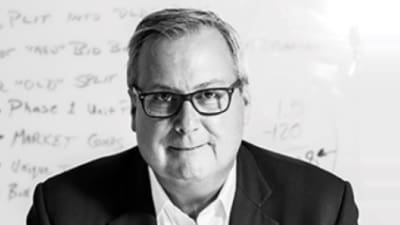
John Vazquez, Senior Vice President Global Head of Real Estate and Supply Chain at Verizon
Very few people have had as much success building out large office environments as John Vazquez. Now the Global Head of Real Estate at Verizon for almost a decade, Vazquez’s legacy includes long stints at industry-leading organizations such as JPMorgan Chase and MetLife, where he curated workplace design and office culture to attract and retain top talent among the most competitive landscapes. Vazquez has been a transformative force in the way these organizations work, deciding which innovations are worth the investment and which are passing fads. Today at Verizon, he is faced with the challenge of creating the post-pandemic office, and he is placing his bet on a hospitality-driven, human-centric workplace with wellness at the forefront. Vazquez explains that wellness is more than access to fitness centers and a nutrition program; people need to feel valued for who they are as individuals.
Historical Context
The idea of what a standard office looks like has been constantly evolving since its inception in the 1700s when the Royal Navy developed an entire city block as a space for employees to work on trading documents. With perpetual improvements in technology, furniture and general lifestyle throughout the decades, the physical office has continually adapted to meet people’s needs and expectations. As the recent pandemic outbreak constituted a mandatory work from home protocol across the nation, we are now at a major turning point in the way we live and work, and offices must evolve again to meet the changing needs of society.
Vazquez has personally experienced many iterations of change, including how sustainability and LEED certifications went from a nice bonus to the minimum standard expectation. “Sustainability used to be considered a ‘value’ or ‘mission’ of a company, but it is now beyond a core aspect” of any office. Similarly, the wellness certification that came out just a few years ago through International Wellness Building Institute (IWBI) and companies like Delos were perceived as simply positive attributes, or a bonus for workplace culture. Now in the post-pandemic world, “wellness is beyond the core, too.”
When “wellness” first entered the workplace dialogue, “it was thought of as simply Human Resources, then included physical fitness or healthy snacks at the office and supportive statements around work/life balance. [These initiatives] count on people making the effort to help themselves,” Vazquez said, since they are a passive option versus a part of everyday life. But after experiencing a global pandemic that shutdown cities like New York for over a year, and required people to quarantine in their homes for months on end, is this enough to make people feel safe returning to the office or, as a best case scenario, have the desire to return? In the words of Vazquez, “people need to feel secure physically and mentally, whether they’re working from home or in the office.”
Introducing Hospitality to the Workplace
The office is no longer a place people must go, but it is a place people choose to visit because they feel good when they are present and interacting within the space. To create this welcoming environment, Vazquez thought beyond the traditional office for inspiration and realized he always feels good when on vacation at a resort. “Why do I feel good at a resort? Because of the hospitality, the service and the authentic appreciation from the establishment,” he said. “Resort staff treat guests like individuals.” The mission at Verizon is to recreate this feeling for their own employees, to develop a “very personal and human-centric” office that is “high touch and high demand.”
The physical space, and how people are treated inside of it, are important aspects of feeling genuinely well at work. Vazquez uses the term “brand love” to fill in the other missing pieces. How the company behaves beyond the built environment also matters and even influences the overall workplace culture. As part of the company’s mission, Verizon has several programs to provide digital skills training and resources to underserved students, workers and small businesses to help prepare them for opportunities in the future. “When you care for society, this creates brand love internally and people want to contribute. Helping others stay connected is our purpose in the world; it is our responsibility.”
As companies like Verizon care for those in need, then it only makes sense for this to be applied to their own people as well. “If we have this mindset of crisis response and understanding of adversity, then it bleeds into the workplace.”
Implementing New Concepts
As the return-to-office movement draws near, Vazquez and his team have moved forward at an impressively fast pace. Verizon bought a hotel to incorporate into their campus. Then they brought on an entire hospitality team to merge with their existing facilities team. These professionals come from the hotel and resort world and will induct their experience and expertise into the workplace. Employees will be treated as individuals with unique needs and be appreciated for who they are and what they contribute to the company.
Catering to individual needs requires flexibility on how and where people work. This last year of uncertainty has created an opportunity to create an inclusive and equal workplace where the employees feel cared for and appreciated. The pandemic presented a “common experience for all employees.” This shared event has helped level the playing field for remote workers who may have previously felt like they were at a disadvantage from their headquarters- based colleagues.” Everyone can relate to the requirements it takes to work from home and has learned how to collaborate despite the physical boundaries.
To sum up Vazquez’s vision, the concept of workplace wellness begins with the individual’s basic needs and then evolves beyond nice perks and community-building exercises into something less tangible but more impactful. Building a people-centric workplace requires a mental and cultural shift, not just a physical one.










